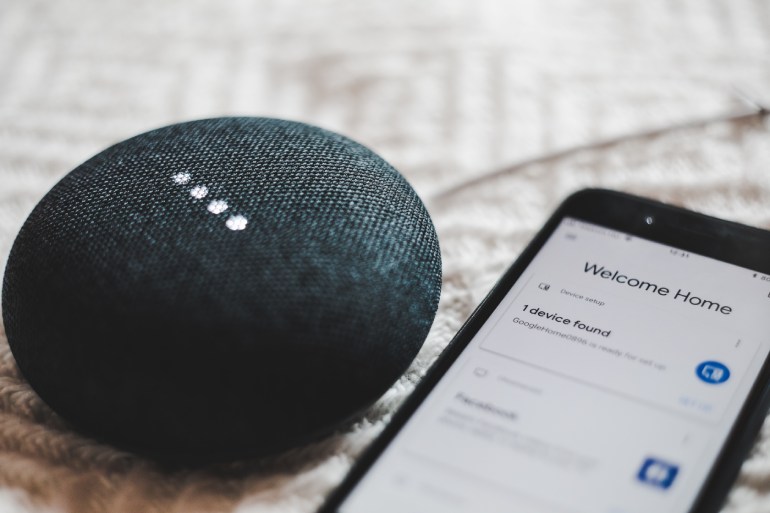 Voice search is already pervasive and used every day, people ask for recipes, addresses, opening times or the weather occasionally; therefore, websites should be optimized accordingly. This means in practice, preparing information clearly, answering simple questions, and optimizing the loading time.
Voice search is already pervasive and used every day, people ask for recipes, addresses, opening times or the weather occasionally; therefore, websites should be optimized accordingly. This means in practice, preparing information clearly, answering simple questions, and optimizing the loading time.
In contrast to written search queries, whole sentences are often "entered" in voice searches. Consequently, the better a website can respond to such detailed searches, the more likely it is to pick up users, thereby making content that helps users and answers their questions all the more important.
Voice assistants are one of the more frequently used applications in smart speakers and smartphones, which is why marketers can’t ignore that trend and should adapt to the changes brought by them.
Hence, keep an eye on the most popular voice controlled personal assistants and devices, which are the following:
| Virtual assistant | Owned by | Devices | Languages supported |
| Alice | Yandex | Yandex Station | Russian |
| AliGenie | Alibaba Group | Tmall Genie | Chinese |
| Amazon Alexa | Amazon | Amazon Echo | English; French; German; Italian; Japanese; Portuguese and Spanish |
| Bixby | Samsung Electronics | Galaxy Home | English; French; Korea; Chinese; German; Italian; Portuguese and Spanish |
| Clova | Naver, Line Corp. | Wave, Friends | Japanese, Korean |
| DuerOS Open Platform | Baidu | Xiaoyu, RavenH, Aladdin | Chinese |
| Google Assistant | HomeMax, Home Mini, Nest Hub | Danish; Dutch; English; French; German; Hindi; Italian; Japanese; Korean; Norwegian; Portuguese; Spanish and Swedish |
|
| Hallo Magenta | Deutsche Telekom | Hallo Magenta | German |
| Marusia | Mail.Ru Group | Capsula | Russian |
| Microsoft Cortana | Microsoft | Harman Kardon INVOKE | English, Chinese (Simplified); French; German; Italian; Japanese; Portuguese; Spanish |
| Safety Labs Sirona | Safety Labs Inc | Sirona.TV | English |
| Siri | Apple, Inc. | Apple HomePod | Arabic; Chinese (Cantonese and Mandarin); Danish; Dutch; English; Finnish; French; German; Hebrew; Italian; Japanese; Korean; Malay; Norwegian; Portuguese; Russian; Spanish; Swedish; Thai and Turkish |
| Xiaowei | Tencent | forthcoming | Chinese |
| Beijing LingLong, part of JD | DingDong | Mandarin and Cantonese for Greater China |
Unfortunately, there is still a lack of user confidence in the providers of smart speakers. But even though marketers are aware of this situation, the topic still plays a subordinate role in their day-to-day operations. At least, that’s what the DMEXCO trend survey revealed two years ago with 854 national and 270 international participants from their community, revealing at the same time that the technological evolution relating to voice is only at the beginning.
According to the study, smart speakers are primarily used to listen to music via a streaming provider (around 40%) and for web radio or podcasts (around 30%). Searching via voice or ordering products via smart speakers is only used by around 20%, while voice commerce is still the least used application.
Even though sales volume of devices and the use of voice assistants are constantly rising, smart speakers simply have one great weakness: many people consider them as intruders in their living rooms and are afraid that their personal data isn’t handled with enough sensitive care.
Hence, the area of advertising and communication via smart speakers is also assessed very critically, meaning a majority states that they only agree to commercials if they are actively interested and around half would like free content (music, podcasts, etc.) in return for advertising and a smarter packaging of advertising, for example through native, editorial-like formats.
“Hardly any other device has spread as quickly as smart speakers and their associated language assistants, but the assessment of our community showed that even the experts who already use smart speakers tend to distrust manufacturers regarding data protection and privacy”, the Chief Advisor of DMEXCO said, emphasizing that it is crucial to draw attention to the important role society’s trust plays in the further development of the digital economy.
By Daniela La Marca


